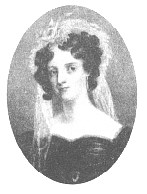Why did the suffrage campaign develop in the nineteenth century?
- Women were increasingly better educated and became more aware of their disadvantaged position and of the concept of 'rights'.
- Books such as Mary Wollstonecraft's Vindication of the rights of woman published in 1792 were influential. William Thompson and Anna Doyle Wheeler, both from the south of Ireland, published a book in 1825 with the extraordinary title, Appeal of one half the human race, women, against the pretensions of the other half, men, to retain them in political, and thence in civil and domestic slavery. John Stuart Mill and Harriet Taylor Mill's The Subjection of Women published in 1869 made a considerable impact.
- Influence of suffrage campaigns abroad, particularly in the USA since the 1840s.
- Humanitarian ideas flourished in the nineteenth century. Often then as now, these ideas were not translated into action but reform did actually take place in areas such as family law, the abolition of slavery, improvement of living and working conditions, the right to form trade unions, education, Catholic Emancipation and the Poor Law Acts.
- Resentment at the exclusion of 'one half the human race, women' from the franchise by inserting the words 'male person' in the Great Reform Act (1832) and maintaining that exclusion throughout the nineteenth century.
- Reaction to the patronising and often contemptuous attitude towards those who approved of education for women and supported women's rights.
 Anna Doyle Wheeler
Anna Doyle Wheeler
